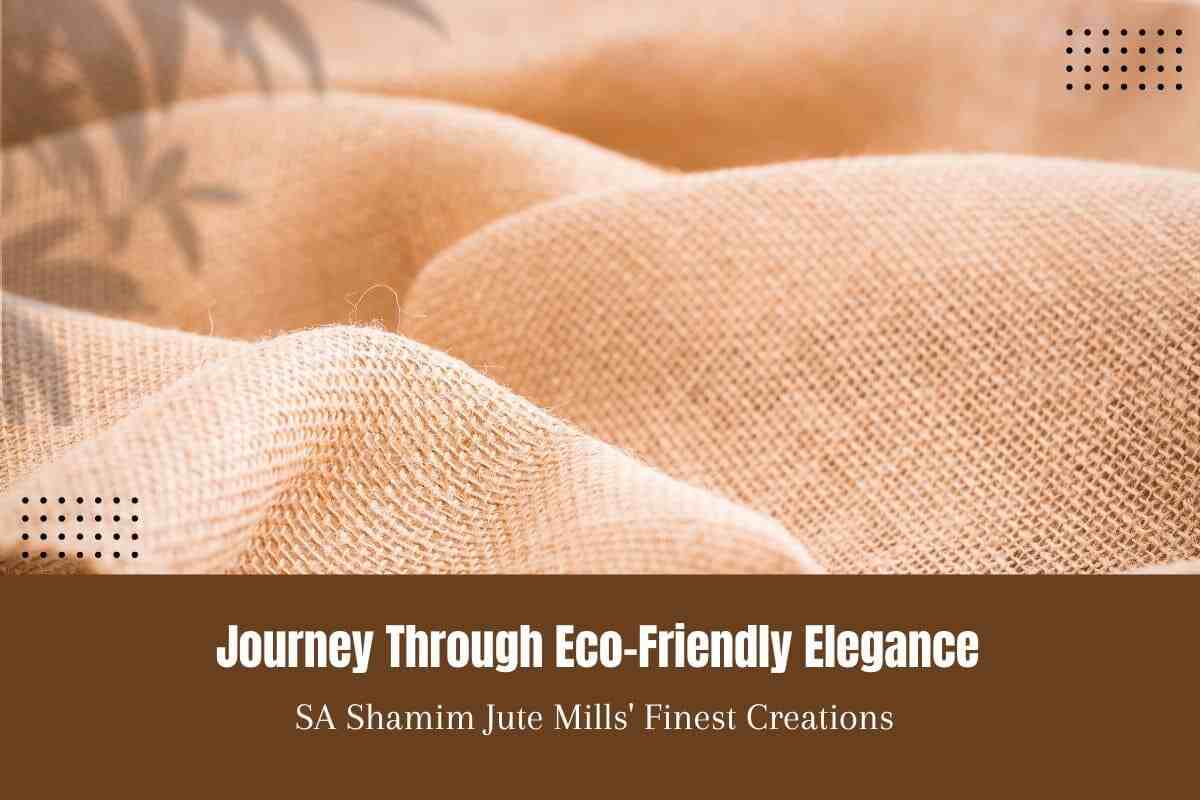Bangladesh, known for its rich cultural heritage and natural beauty, is also a prominent player in the global jute industry. The country’s commitment to sustainability and eco-friendliness is evident in its production of high-quality jute products. In this blog post, we take a deep dive into the world of eco-friendly jute products, with a spotlight on SA Shamim Jute Mills, located in Bokultola, Bochagonj, Dinajpur. Let’s uncover the journey of jute from its humble beginnings to the finest creations that contribute to a greener planet.
The Legacy of Jute in Bangladesh
Jute, often referred to as the “golden fiber,” has been an integral part of Bangladesh’s economy for decades. With a rich history dating back to ancient times, jute has evolved from traditional uses to becoming a symbol of sustainable progress. Bangladesh’s expertise in jute cultivation and production has earned it a prominent place on the global stage.
SA Shamim Jute Mills: A Beacon of Eco-Friendly Innovation
Location: Bokultola, Bochagonj, Dinajpur
SA Shamim Jute Mills stands as a testament to Bangladesh’s dedication to eco-friendly manufacturing. Situated in the heart of Bokultola, Bochagonj, Dinajpur, this jute mill exemplifies the fusion of tradition and innovation. Their commitment to sustainable practices extends beyond mere production – it’s a way of life.
Quality and Craftsmanship
SA Shamim Jute Mills is synonymous with quality. Each product crafted here reflects the dedication to maintaining the highest standards. The skilled artisans combine traditional techniques with modern sensibilities, resulting in jute products that marry authenticity with contemporary elegance.
Range of Eco-Friendly Offerings
From stylish fashion accessories to durable home décor, SA Shamim Jute Mills offers a wide range of eco-friendly jute products. Their collection caters to diverse tastes and needs, making it a preferred choice for conscious consumers who seek products that align with their values.
The Eco-Friendly Advantage
Sustainability and Biodegradability
One of the key strengths of jute products lies in their sustainability. Jute is a natural fiber that is biodegradable, meaning it breaks down naturally without causing harm to the environment. As consumers increasingly seek sustainable alternatives, jute products have emerged as a frontrunner.
Reducing Carbon Footprint
Jute cultivation requires fewer pesticides and fertilizers compared to other crops, leading to a reduced carbon footprint. Additionally, jute plants absorb significant amounts of carbon dioxide during their growth, contributing to cleaner air and a healthier environment.
The Economic and Social Impact
Employment Opportunities
The jute industry is a vital source of employment in Bangladesh, offering opportunities to millions. SA Shamim Jute Mills, located in Bokultola, plays its part in empowering local communities by providing jobs and supporting livelihoods.
Contributing to the Local Economy
Jute manufacturing, especially when carried out in an eco-friendly manner, contributes significantly to the local economy. SA Shamim Jute Mills’ commitment to sustainable practices resonates with consumers who recognize the positive impact of their choices.
The Future of Eco-Friendly Jute Products
As global awareness about environmental concerns continues to grow, the demand for eco-friendly products is on the rise. SA Shamim Jute Mills is well-positioned to meet this demand with its dedication to sustainable manufacturing and innovative design. The future of eco-friendly jute products holds promise as more individuals and industries prioritize ethical consumption.
Conclusion
The journey of exploring Bangladesh’s best eco-friendly jute products leads us to SA Shamim Jute Mills. Situated in Bokultola, Bochagonj, Dinajpur, this mill stands as a beacon of eco-friendly innovation, producing high-quality jute products that align with sustainability and craftsmanship. By choosing these products, consumers contribute to a greener future while embracing authenticity and elegance. As SA Shamim Jute Mills continues to lead the way, the legacy of jute in Bangladesh evolves, intertwining tradition with modern values for generations to come.



